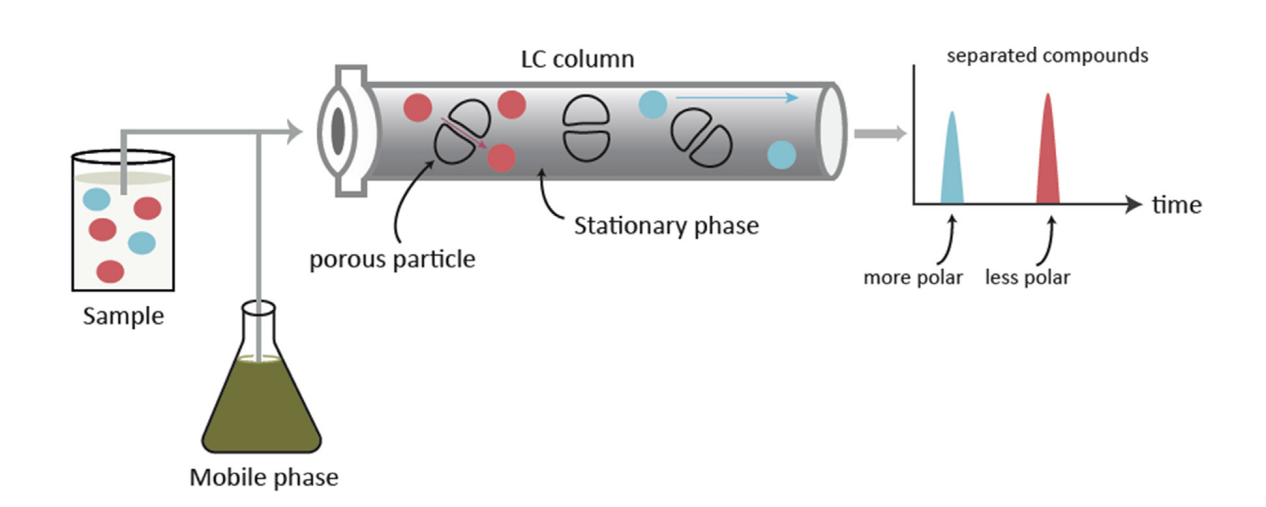RPLC-Based Modified Peptide Enrichment Service
Reversed-phase liquid chromatography (RPLC) is one of the most widely used techniques in proteomics for peptide separation and enrichment. It exploits hydrophobic interactions between peptides and a nonpolar stationary phase to achieve efficient resolution and reproducible retention. When applied to post-translational modification (PTM) studies, RPLC enables selective fractionation and concentration of modified peptides, improving detection sensitivity and quantitative accuracy in mass spectrometry–based proteomics.
MtoZ Biolabs offers a comprehensive RPLC-Based Modified Peptide Enrichment Service to support in-depth PTM characterization and proteomic profiling. In PTM research, RPLC plays a crucial role as both a peptide cleanup and fractionation method. Modified peptides often differ in hydrophobicity from their unmodified counterparts due to changes in charge, polarity, or side-chain properties. This difference enables RPLC to serve as an effective enrichment or prefractionation step, improving the detection of low-abundance modified peptides before LC-MS/MS analysis. RPLC is compatible with various analytical workflows, including phosphoproteomics, glycoproteomics, acetylomics, and ubiquitinomics. It can be coupled with other orthogonal separation methods such as ion-exchange or hydrophilic interaction chromatography (HILIC) to enhance peptide coverage. By combining optimized reversed-phase chromatography with high-resolution LC-MS/MS and advanced data processing workflows, we provide high-quality results for identifying, quantifying, and functionally interpreting a wide range of protein modifications.
Technical Principles
Reversed-phase liquid chromatography (RPLC) separates peptides primarily based on their hydrophobic interactions with a nonpolar stationary phase. In this system, the stationary phase typically consists of silica particles chemically bonded with hydrophobic alkyl chains, most commonly C18 or C8 groups. These long hydrocarbon chains create a nonpolar environment that selectively retains peptides according to the extent of their hydrophobicity. The mobile phase used in RPLC is polar and typically composed of water mixed with an organic solvent such as acetonitrile or methanol, along with a low concentration of volatile acids (e.g., formic acid or trifluoroacetic acid) to stabilize peptide ionization. During chromatographic separation, a linear or stepwise gradient of increasing organic solvent concentration is applied. Peptides with weaker hydrophobic interactions elute earlier in the gradient, while more hydrophobic peptides require higher organic solvent levels to disrupt their interaction with the stationary phase.
The underlying separation mechanism involves a dynamic equilibrium between peptide adsorption onto the stationary phase and desorption into the mobile phase. As the proportion of the organic solvent increases, the dielectric constant of the mobile phase decreases, weakening hydrophobic interactions and promoting peptide elution in order of increasing hydrophobicity. The fine control of gradient steepness, temperature, and flow rate ensures high-resolution separation and reproducible retention behavior.

Alsaleh, M. et al. J Clin Exp Hepatol. 2019.
Figure 1. Separation in Reversed-Phase Liquid Chromatography
In the context of modified peptide enrichment, RPLC exploits subtle hydrophobicity changes caused by post-translational modifications (PTMs). Modifications such as phosphorylation or glycosylation increase peptide polarity, leading to earlier elution, while lipidation or acylation enhance hydrophobicity and delay elution. By adjusting gradient conditions and column chemistry, RPLC can selectively enrich or fractionate modified peptides from complex digests.
Analysis Workflow
1. Proteins are extracted, quantified, and enzymatically digested to generate peptides while preserving post-translational modifications.
2. Peptide mixtures are loaded onto a C18 reversed-phase column pre-equilibrated with aqueous mobile phase.
3. A controlled organic solvent gradient is applied to separate peptides according to hydrophobicity and charge characteristics.
4. Fractions containing modified peptides are collected and concentrated for downstream analysis.
5. Enriched samples are analyzed using high-resolution LC-MS/MS for site-specific identification and quantification.
6. Data are processed through bioinformatics pipelines for PTM site mapping, quantitative profiling, and functional annotation.
Service Advantages
✅ High Resolution and Sensitivity: Advanced RPLC platforms coupled with high-performance mass spectrometry ensure precise peptide separation and detection of low-abundance modified peptides.
✅ Adjustable Mobile Phase: Flexible gradient control enables optimized separation for diverse PTM types and complex biological samples.
✅ End-to-End Service: Integrated workflows from sample preparation to bioinformatics analysis deliver rapid and reproducible results.
✅ Experienced Team: A professional scientific team with extensive expertise in chromatography and proteomics provides reliable data interpretation and technical support.
Applications
1. Post-Translational Modification Profiling
Enables comprehensive analysis of phosphorylation, acetylation, methylation, and other charge- or hydrophobicity-dependent PTMs.
2. Quantitative Proteomics
Supports comparative studies across biological conditions or treatments through precise peptide quantification.
3. Biomarker Discovery
Facilitates identification of PTM-based biomarkers in disease models and clinical samples.
4. Protein Structure and Function Studies
Reveals the role of modified residues in protein folding, stability, and interaction networks.
5. Drug Mechanism and Target Analysis
Assists in evaluating drug-induced changes in PTM patterns and pathway regulation.
Deliverables
1. Comprehensive Experimental Details
2. Materials, Instruments, and Methods
3. Total Ion Chromatogram & Quality Control Assessment (project-dependent)
4. Data Analysis, Preprocessing, and Estimation (project-dependent)
5. Bioinformatics Analysis
6. Raw Data Files
By integrating advanced reversed-phase chromatography, state-of-the-art mass spectrometry, and expert bioinformatics, we deliver reliable, publication-ready data that help researchers uncover the molecular mechanisms of protein regulation. MtoZ Biolabs is committed to advancing proteomic research through high-quality analytical solutions and dedicated scientific support. Free project evaluation, welcome to learn more details.







